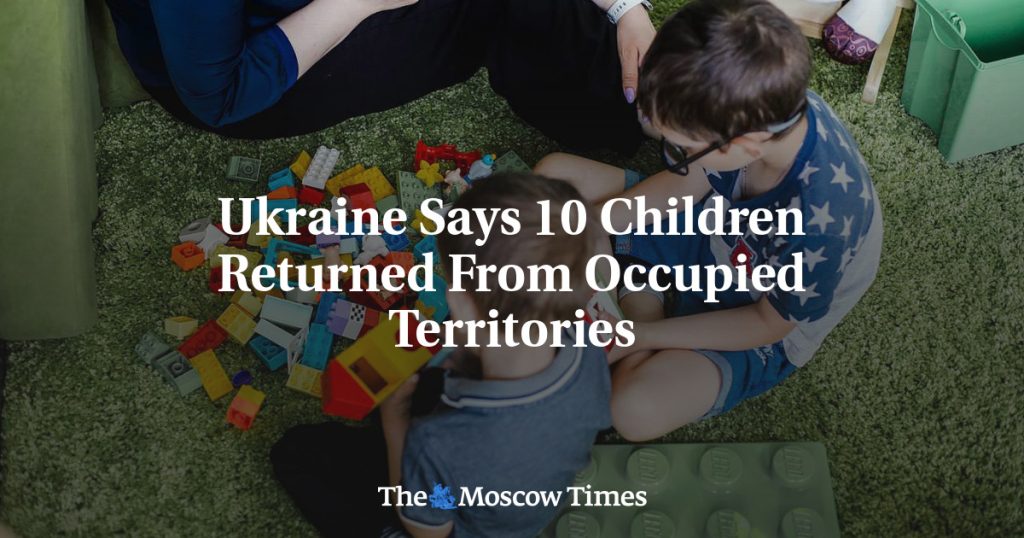Ten Ukrainian children and their families have recently been returned from territories controlled by Russia to areas under Ukraine’s control. This follows accusations from Ukraine that Russia has abducted nearly 20,000 children from regions in the east and south, with many others living under Russian occupation after Moscow’s invasion in 2022. The children and families in question were residing in Donetsk, Kherson, and Zaporizhzhia regions under Russian occupation. Human rights ombudsman Dmytro Lubinets highlighted that the children experienced “horrors” while living under Russian control, including being forced to attend Russian schools and sing the Russian national anthem. Additionally, families were allegedly pressured to obtain Russian passports in order to access essential services such as medical care.
The Ukrainian government has been prioritizing the return of children and families from Russian-occupied territories to areas controlled by Ukraine. Russia has claimed that they relocated some Ukrainian children for protection from the conflict, although Ukraine maintains that these actions constitute abduction. Last year, the International Criminal Court issued an arrest warrant for Russian President Vladimir Putin and his children’s rights commissioner, Maria Lvova-Belova, over these allegations of abduction. This underscores the gravity of the situation and the international legal repercussions that Russia may face for its actions in Ukraine.
The return of the ten Ukrainian children and their families from Russian-occupied territories marks a small victory for Ukraine in the ongoing conflict with Russia. By bringing these individuals back under Ukrainian control, Kyiv is able to provide them with better access to essential services and protect them from further harm or coercion by Russian forces. It also serves as a symbolic gesture of Ukraine’s commitment to safeguarding the rights and well-being of its citizens, particularly its children, in the face of aggression and occupation by a foreign power.
The revelation that Russian officials in the occupied territories were reportedly forcing Ukrainian children to attend Russian schools and adopt Russian passports further highlights the extent of Moscow’s efforts to assimilate these individuals into the Russian-controlled system. Such actions are seen as a violation of international norms and human rights, as they infringe upon the cultural identity and autonomy of the Ukrainian children and their families. By returning these individuals to Ukrainian-controlled territory, Kyiv is able to protect them from further attempts at forced assimilation by Russian authorities.
The situation in Ukraine, particularly in regions under Russian occupation, remains complex and fraught with challenges. The return of these ten children and their families is a reminder of the human toll of the conflict, as well as the resilience and determination of the Ukrainian people to resist and reclaim their sovereignty. As the international community continues to monitor and respond to developments in the region, the plight of Ukrainian children and families caught in the crossfire serves as a poignant reminder of the urgent need for peace, stability, and respect for human rights in Ukraine and beyond.
In conclusion, the return of Ukrainian children and families from Russian-occupied territories to areas under Ukrainian control represents a significant development in the conflict between the two countries. It underscores the ongoing violations of human rights and international law committed by Russia in its attempts to exert control over Ukrainian territories. The actions taken by Ukraine to prioritize the return of these individuals and hold Russia accountable for its actions demonstrate the country’s commitment to upholding the rights and well-being of its citizens in the face of aggression and occupation. The international community must continue to support Ukraine in its efforts to protect its people and preserve its sovereignty in the face of ongoing challenges and threats from Russia.


